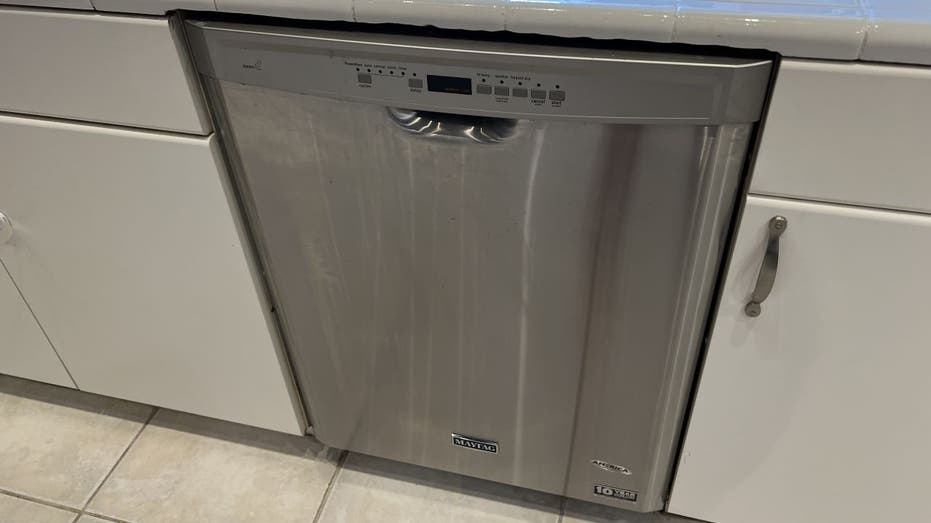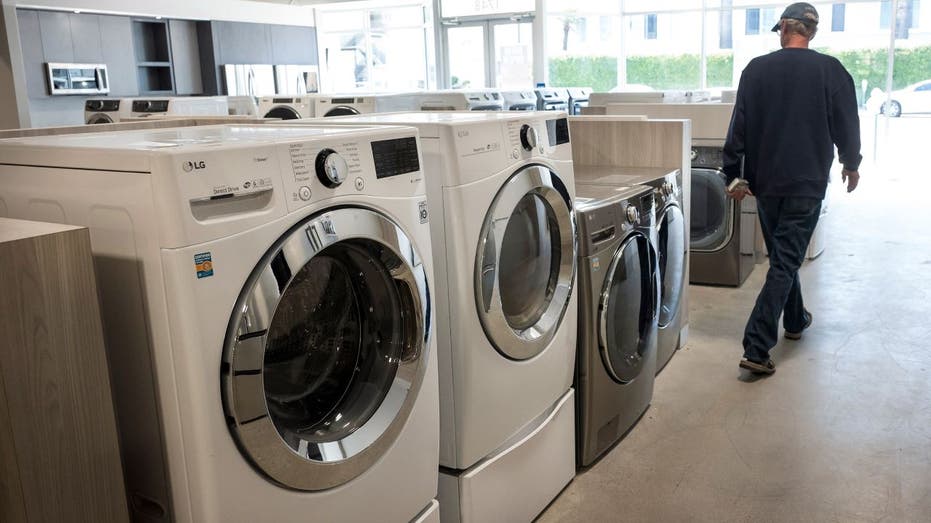North Dakota Gov. Doug Burgum and former Reagan economist Art Laffer weigh in on President Bidens handling of the economy and the failure of Bidenomics.
The Biden administration is facing a lawsuit filed by a think tank challenging the legality of new Energy Department water limits for household dishwashers and washing machines.
The Competitive Enterprise Institute on Thursday filed the lawsuit which seeks to block the Department of Energy’s (DOE) new water efficiency regulations for dishwashers and clothes washers, as well as blocking the agency from issuing new rules for appliances beyond those that Congress has specifically given it the authority to regulate.
“Congress passed a law that regulated the water use of some kinds of appliances, like showerheads and toilets, and the Department of Energy ultimately responded with a rule that regulated the water use of other kinds of appliances like clothes washers and dishwashers,” CEI General Counsel Dan Greenberg told in an interview.
“The way they did that was by capping the water use that the appliances use – they capped the water use of appliances for each cycle that dishwashers and clothes washers ran through,” Greenberg explained. “This is why you have to run things through modern dishwashers and modern clothes washers two or three times in order to get things clean. The caps on water that are supposed to save energy, actually waste energy.”
TELECOM INDUSTRY GROUPS SUE TO BLOCK BIDEN’S REINSTATEMENT OF NET NEUTRALITY RULE
CEI is suing to block the Energy Department’s new water limits on residential washing machines. (Photographer: David Paul Morris/Bloomberg via Getty Images / Getty Images)
CEI’s lawsuit notes that the Fifth Circuit Court of Appeals issued a ruling on Jan. 8 that undermined the Biden administration’s legal justification for the new water efficiency rules by holding that the Energy Policy Conservation Act only granted DOE authority to regulate water efficiency for specific appliances.
“It seems obvious that the statute gave DOE power to regulate energy use for energy-using appliances (like dishwashers and washing machines) or water use for non-energy-using appliances (like showerheads, faucets, water closets, and urinals). No part of that text indicates Congress give DOE power to regulate water use for energy-using appliances (like dishwashers and washing machines),” the court held.
TRUCKERS FILE LAWSUIT AGAINST NYC OVER CITY’S ‘CONGESTION FEE’ FOR DRIVERS

Dishwashers were also included in the DOE’s latest water efficiency regulations at the center of CEI’s lawsuit. (Photo by Smith Collection/Gado/Getty Images / Getty Images)
Greenberg said that despite the court ruling in January, the DOE went ahead with advancing the regulations.
“This is a case about a court that told the federal government ‘you absolutely cannot do this, this is illegal, you have to stop,’ and it’s also about a court that responded by saying ‘I don’t care, I know you told me it’s illegal, but we’re going to keep doing it as long as we can,'” Greenberg added.
“So as long as the government keeps on breaking the law, we’re going to keep on suing the government.”
SENATE DEMOCRATS ACCUSE OIL COMPANIES OF COLLUSION WITH OPEC, DEMAND DOJ INVESTIGATION
Energy Secretary Jennifer Granholm has touted the water efficiency rules as helping reduce consumers’ utility bills. (Photo by Chip Somodevilla/Getty Images / Getty Images)
The Biden administration has touted the rule as promoting cost savings for American consumers through reduced energy bills, while also helping cut carbon emissions.
“Congress requires DOE to issue energy efficiency standards for a range of appliances and we have successfully met this mandate through robust collaboration between industry, manufacturers, and consumer groups,” Energy Secretary Jennifer Granholm said in a statement in April.
GET BUSINESS ON THE GO BY CLICKING HERE
The Department of Energy released the new regulations covering washing machines in February, while the dishwasher rule followed in April. (Photo by J. David Ake/Getty Images / Getty Images)
“As a result of DOE’s commitment to quickly update and strengthen appliance standards American households will see increased savings on their utility bills – keeping more money in the pockets of working families while reducing our nation’s carbon footprint,” Granholm added.


